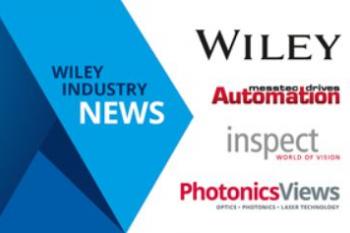Two additive manufacturing processes in comparison
Automated solutions for powder preparation and feeding
The two additive production processes are similar: In selective laser sintering (SLS), a plastic powder, for example polyamide 12 (PA12), is applied to the surface, heated and then selectively solidified with a laser beam. This process is repeated layer by layer.
The selective absorption fusion (SAF) process uses similar plastic powders. However, the process differs from SLS in terms of the solidification mechanism of the powder: After the powder is applied per layer, inkjet print heads in SAF apply an ink that absorbs infrared radiation in specific areas. In these areas, the powder heats up after an infrared emitter passes over it and fuses together.
One possible advantage of this process is the time saved. Instead of deflecting a laser beam in many individual paths per layer, SAF technology requires only a single pass of print heads and infrared lamp. Thus, the build time per layer is not dependent on the components to be printed. However, SLS and SAF have not yet been systematically compared. This benchmark is now being carried out by a research team led by Patrick Springer from the center for additive production at the Fraunhofer Institute for Manufacturing Engineering and Automation IPA. The industrial partner is Götz Maschinenbau, a 3D-printing service provider from Ötigheim, Germany.
The project team now wants to investigate above all the lines of freedom and limitations in the comparison of the processes to each other. To this end, standardized test construction jobs for predefined test scenarios will be printed and evaluated for both processes. The researchers are using PA12, the standard material for 3D printing with plastic powders, as the material. To manufacture the test components, Fraunhofer IPA is one of the first research institutions in Europe to use a Stratasys H350 system, which can process thermoplastic powders from various suppliers.
In order to exploit the full potential of SAF technology, Fraunhofer IPA is also researching automated solutions for powder preparation and feeding. “We support industrial users in the implementation of the technology up to the production of series components. In addition to the application-specific qualification of the process itself, the focus is also on the overall industrial process chain,“ says Springer.
Contact
Fraunhofer-Institut für Produktionstechnik und Automatisierung IPA
Nobelstraße 12
70569 Stuttgart
Germany
+49 711 970-1800








